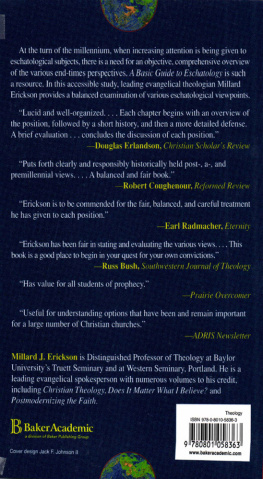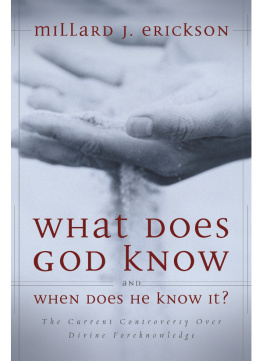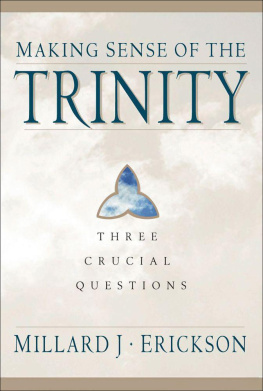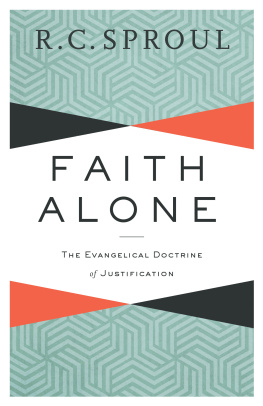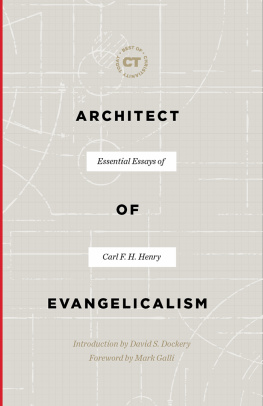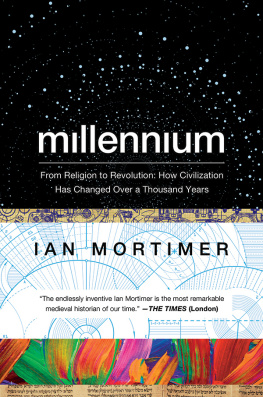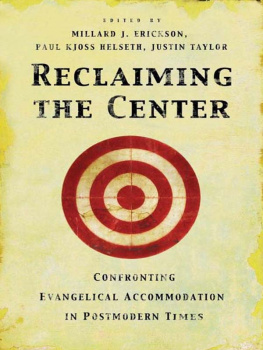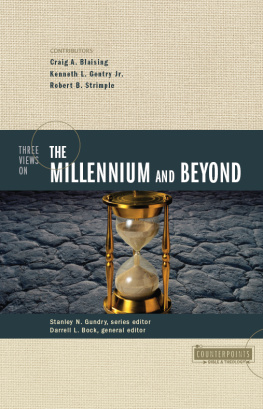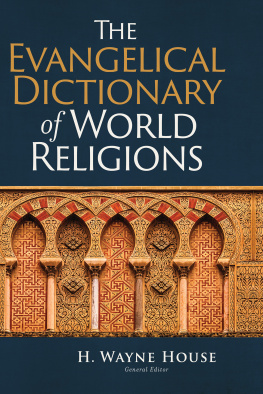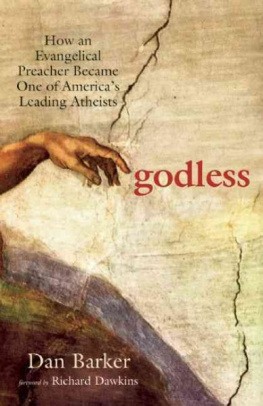Millard J. Erickson - A Basic Guide to Eschatology: Making Sense of the Millennium
Here you can read online Millard J. Erickson - A Basic Guide to Eschatology: Making Sense of the Millennium full text of the book (entire story) in english for free. Download pdf and epub, get meaning, cover and reviews about this ebook. year: 1998, publisher: Baker Publishing Group, genre: Religion. Description of the work, (preface) as well as reviews are available. Best literature library LitArk.com created for fans of good reading and offers a wide selection of genres:
Romance novel
Science fiction
Adventure
Detective
Science
History
Home and family
Prose
Art
Politics
Computer
Non-fiction
Religion
Business
Children
Humor
Choose a favorite category and find really read worthwhile books. Enjoy immersion in the world of imagination, feel the emotions of the characters or learn something new for yourself, make an fascinating discovery.
- Book:A Basic Guide to Eschatology: Making Sense of the Millennium
- Author:
- Publisher:Baker Publishing Group
- Genre:
- Year:1998
- Rating:3 / 5
- Favourites:Add to favourites
- Your mark:
- 60
- 1
- 2
- 3
- 4
- 5
A Basic Guide to Eschatology: Making Sense of the Millennium: summary, description and annotation
We offer to read an annotation, description, summary or preface (depends on what the author of the book "A Basic Guide to Eschatology: Making Sense of the Millennium" wrote himself). If you haven't found the necessary information about the book — write in the comments, we will try to find it.
A leading evangelical theologian provides a comprehensive examination of the various evangelical views of the millennium (and other eschatological subjects).
A Basic Guide to Eschatology: Making Sense of the Millennium — read online for free the complete book (whole text) full work
Below is the text of the book, divided by pages. System saving the place of the last page read, allows you to conveniently read the book "A Basic Guide to Eschatology: Making Sense of the Millennium" online for free, without having to search again every time where you left off. Put a bookmark, and you can go to the page where you finished reading at any time.
Font size:
Interval:
Bookmark:

1977, 1998 by Millard J. Erickson
Published by Baker Academic
a division of Baker Publishing Group
P.O. Box 6287, Grand Rapids, MI 49516-6287
www.bakeracademic.com
Originally published in 1977 under the title Contemporary Options in Eschatology: A Study of the Millennium
Ebook edition created 2012
All rights reserved. No part of this publication may be reproduced, stored in a retrieval system, or transmitted in any form or by any meansfor example, electronic, photocopy, recordingwithout the prior written permission of the publisher. The only exception is brief quotations in printed reviews.
ISBN 978-1-5855-8580-9
Library of Congress Cataloging-in-Publication Data is on file at the Library of Congress, Washington, DC.
To
my wifes parents
Magnus and Ruth Nepstad
Contents
Preface
The approach of the end of the twentieth century and the second Christian millennium has contributed to a growing interest in issues of eschatology. I am grateful to Baker Books and especially its Academic Books Editor, Jim Weaver, for bringing out this revised edition of an earlier work. The chapter on dispensationalism has been rewritten to reflect the changes in that movement, known as progressive dispensationalism.
The original volume grew out of a request by students at Bethel Theological Seminary for a course that would examine thoroughly and objectively the eschatological options extant in the circles in which they would one day minister. In preparing for that course, I realized that the need for such a study goes beyond the walls of our classroom.
I wish to thank all who have assisted in the production of this work. I am especially indebted to those students who first requested the course and whose questions and comments helped sharpen my thinking. My teaching assistant, Mrs. Ines E. Bowers, read the entire manuscript thoroughly and offered numerous suggestions, particularly regarding stylistic matters. Typing was done by Mrs. Nikki Daniels and Mrs. Aletta Whittaker. All imperfections in the manuscript are of course my responsibility alone.
Introduction
James Orr, lecturing at the end of the nineteenth century, observed that various areas of Christian doctrine had received special attention and development at different periods in the history of the church. Thus in the second century the church dealt especially with apologetics and the fundamental ideas of Christianity; in the third and fourth centuries, with the doctrine of God; in the early fifth century, with man and sin; in the fifth to seventh centuries, with the person of Christ; in the eleventh to sixteenth centuries, with the atonement; and in the sixteenth century, with the application of redemption (justification, etc.). There had been doctrinal convictions, either implicit or explicit, on these subjects previously, but it was as crises arose in these areas at these particular periods that the positions were more precisely articulated.
Orr suggested that the peculiar interest of the modern age is eschatology, the one remaining undeveloped topic of theology:
Probably I am not mistaken in thinking that, besides the necessary revision of the theological system as a whole, which could not properly be undertaken till the historical development I have sketched had run its course, the modern mind has given itself with special earnestness to eschatological questions, moved thereto, perhaps, by the solemn impression that on it the ends of the world have come, and that some great crisis in the history of human affairs is approaching. Even here I do not anticipate that the great landmarks in Christian doctrine will undergo any serious change.
Orr felt that while the doctrine of eschatology had been discussed in the nineteenth century, it had yet to receive major treatment and the issues had deepened during the last generation or two.
The twentieth century has seen intensive study of several specific doctrines. The first half of the century focused uniquely upon the doctrine of revelation. The doctrine of the church, especially as it related to the ecumenical movement, was discussed at great length in the second quarter, fading gradually in the third quarter. Following that, the doctrine of the person and work of the Holy Spirit received special attention, with the level of concern having now apparently peaked. In more recent years eschatology seems to have moved to the forefront. Movements such as the theology of hope have given eschatology virtually an exclusive domain. In previous times a doctrine required a century or more for thorough delineation, but now, with the acceleration of discussion, research, and communication, the periods may have shortened to a quarter-century or less.
The preoccupation with eschatology has taken different forms in different groups. Within conservative Christian circles it relates to the order of events connected with the second coming of Christ. Conservatives reached a consensus on the major points of eschatology by the beginning of the twentieth century. All human beings (except those still alive when the Lord returns) must undergo physical death, at which time they go to an intermediate state appropriate to their spiritual condition. Those who have trusted themselves to the saving work of Jesus Christ will go to a place of bliss and reward; those who have not, will go to one of punishment and torment. At some future time Christ will return bodily and personally. Then all the dead will be resurrected and consigned to their ultimate destinationheaven or hell. There they will remain eternally in an unalterable condition.
Within this general scheme, however, there has been considerable variation. This has related first to the question of whether there will be a millennium (a thousand-year earthly reign of Jesus Christ), and then, for those who answer yes, to the question of whether Christ will return at the beginning or end of the millennium. Among those who hold that this return will precede the millennium, some believe that the church will go through a time of severe anguish called the great tribulation; others that the church will be removed from the world, or raptured, before the tribulation. Around these issues a considerable amount of debate has taken place in recent years. Whether or not we agree that these are important issues, since those who discuss them consider them important, we must examine them.
The primary purpose of this book is to examine closely these conservative options. In order to place the discussion in a broader context, the first two chapters will examine a number of other alternatives that have been popular in the nineteenth and twentieth centuries. Some of these fall outside the range usually considered evangelical. This will help us understand the general mood or milieu contributing to the construction of contemporary eschatology. Then consideration will be given to the various millennial positions, then to the several tribulational views. As part of this last section, the theological and hermeneutical system known as dispensationalism, which figures so prominently in the tribulational debate, will be closely examined.
The pattern of treatment of each millennial and tribulational position will be the same: a brief overview of the position, its history, a more thorough examination of its major concepts and of the arguments offered in support of them, and finally an evaluation of both its positive and its negative aspects.
The author puts forth this work with the prayer that it will stimulate and encourage the readers interest in the important issues of eschatology, deepen his confidence in the fact of the Lords blessed coming, stimulate him to search the Scriptures to determine the things which are true, and increase his understanding of and appreciation for the convictions of those whose views differ from his.
Next pageFont size:
Interval:
Bookmark:
Similar books «A Basic Guide to Eschatology: Making Sense of the Millennium»
Look at similar books to A Basic Guide to Eschatology: Making Sense of the Millennium. We have selected literature similar in name and meaning in the hope of providing readers with more options to find new, interesting, not yet read works.
Discussion, reviews of the book A Basic Guide to Eschatology: Making Sense of the Millennium and just readers' own opinions. Leave your comments, write what you think about the work, its meaning or the main characters. Specify what exactly you liked and what you didn't like, and why you think so.

